War
Our Northern Neighbour
July 10, 1944
A look at Soviet foreign policy and the value of the Soviet Union as an ally.
Northwest by Air
July 10, 1944
The construction of chains of airfields in northwestern Canada was a difficult job of strategic importance in the war effort.
Global Air Routes
July 10, 1944
Account of the development of air transport during wartime and a review of issues to be solved in regulating international civil aviation.

Johnny Doesn't Live Here Anymore
July 7, 1944
A young girl rents an apartment from a man who has recently enlisted in the Marines. The trouble is that he's given out keys to a half-dozen of his friends, and they all keep dropping in.

La Fuga
July 4, 1944
A stagecoach full of conflictive passengers makes its dangerours way from Mexico to Veracruz during the days of the French Intervention.
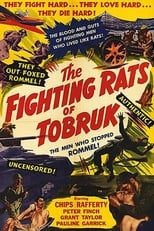
The Rats of Tobruk
June 30, 1944
Three friends enlist in the Australian Army and serve in North Africa, holding the city of Tobruk against Rommel's forces.

Since You Went Away
June 30, 1944
In 1943, several people enter, re-enter, and exit the difficult life of a Midwestern family whose patriarch has been called up to war, leaving behind his wife and two teen daughters.
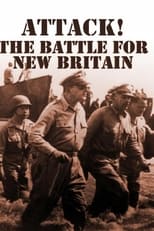
Attack! The Battle for New Britain
June 20, 1944
Actual footage by the United States Signal Corps of the landing and attack on Arawe Beach, Cape Glouster, New Britain island in 1943 in the South Pacific theatre of World War Two, and the handicaps of the wild jungle in addition to the Japanese snipers and pill-box emplacements.

Marie-Louise
June 18, 1944
The titular Marie-Louise is a young French lass who is evacuated to Switzerland when her country is overrun by the Nazis. Suffering a nervous breakdown, she is given comfort and shelter by a wealthy family. Unfortunately, living in the lap of luxury makes Marie-Louise hesitant to return home to her mother and war torn home. Eventually the girl comes to her senses, but it isn't easy.
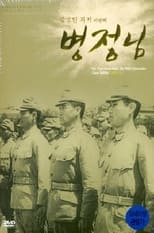
Dear Soldier
June 16, 1944
Two Korean conscripts undergo Imperial Japanese Army training, much to the pleasure of their families.

Days of Glory
June 16, 1944
A heroic guerilla group fights back against impossible odds during the 1941 Nazi invasion of Russia.

The Chow Hound
June 15, 1944
Snafu learns of the folly of hoarding and wasting military food supplies.
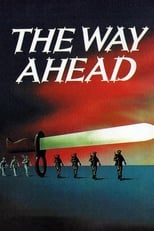
The Way Ahead
June 9, 1944
A mismatched collection of conscripted civilians find training tough under Lieutenant Jim Perry and Sergeant Ned Fletcher when they are called up to replace an infantry battalion that had suffered casualties at Dunkirk.

Jubilation Street
June 8, 1944
The few residents left on the streets in Tokyo share their individual stories and come to understand the melancholy of saying goodbye.
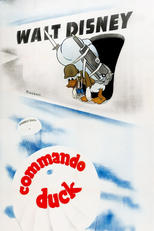
Commando Duck
June 2, 1944
Donald Duck is ordered to wipe out a Japanese airfield. After parachuting out of an airplane, he lands in a Japanese forest. He uses an inflated canoe to cross the river, but as soon as it fills up with water, Donald is running for his life. He makes sure the canoe hits nothing that would pop it. When he gets to the edge of a cliff, he sees the airfield. The canoe has already exploded, causing water to flow. This large amount of water splashes onto the airfield, wiping the whole thing clean, but leaving disfigured airplanes

Soldier, Sailor
June 1, 1944
Life aboard merchant ships with the Maritime Regiment of the Royal Artillery.
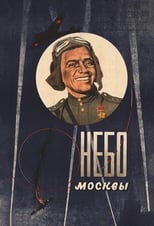
Moscow Skies
June 1, 1944
Based on the play of the same name by Georgi Mdivani. In September 1941, lieutenant Ilya Streltsov, who graduated from the flight school, was assigned to the fighter aviation regiment guarding the sky of Moscow. He meets in part the nurse Zoya, with whom he grew up in the same yard and with whom he has long been in love. During the first training flight on the "Seagull", lieutenant Streltsov shot down a German plane and received the nickname "Lucky." Streltsov is jealous of the squadron commander to nurse Zoya, believes that he is finding fault with him. For a whole month he is not allowed to fly sorties. In October 1941, lieutenant Streltsov made his first sortie, he shot down one plane and rams the second. For this battle, he is awarded the title Hero of the Soviet Union.
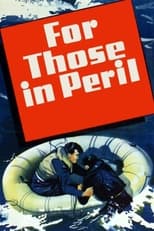
For Those in Peril
June 1, 1944
A WWII flyer fails to join the RAF so he joins the Air - Sea Rescue instead. His boat is out in all conditions picking up downed pilots and taking them to safety.
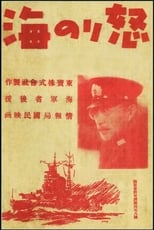
The Cruel Sea
May 25, 1944
It is 1921 and a town has a newspaper which prints urgent bulletins as required. The Washington-based CITES treaty, in which Japan participates, puts a limit on the number of warships any country can possess. As a result, Japan has to decommission a ship to its makers' disappointment. An institute of technology's laboratory designs a new ship. Due to less ships, sailors have to retire and are also disappointed. The laboratory's manager and an admiral are visiting a patient at a hospital and meet coincidentally. The former has a daughter who worries about her father's workload. She asks him to accompany her to a concert. Father has little time, but is convinced for her sake. He is inspired for a ship's design at the performance. The film is inspired by the life of Jo Hiraga.

Junge Adler
May 24, 1944
Director Brakke has good reason to be happy: he has just received the news that his son, Theo, won first place in the local boat race. To be sure, he had forbidden his son to take part in the competition, because the son's grades in school are substandard. In the end, Brakke sees no other way than to pull Theo from school and install him as an apprentice in his airplane manufacturing plant. Although Theo is received by the other 150 apprentices in a friendly fashion, he behaves in an arrogant and disrespectful tone towards them. He feels himself to be better than them, because his father is the director of the factory.